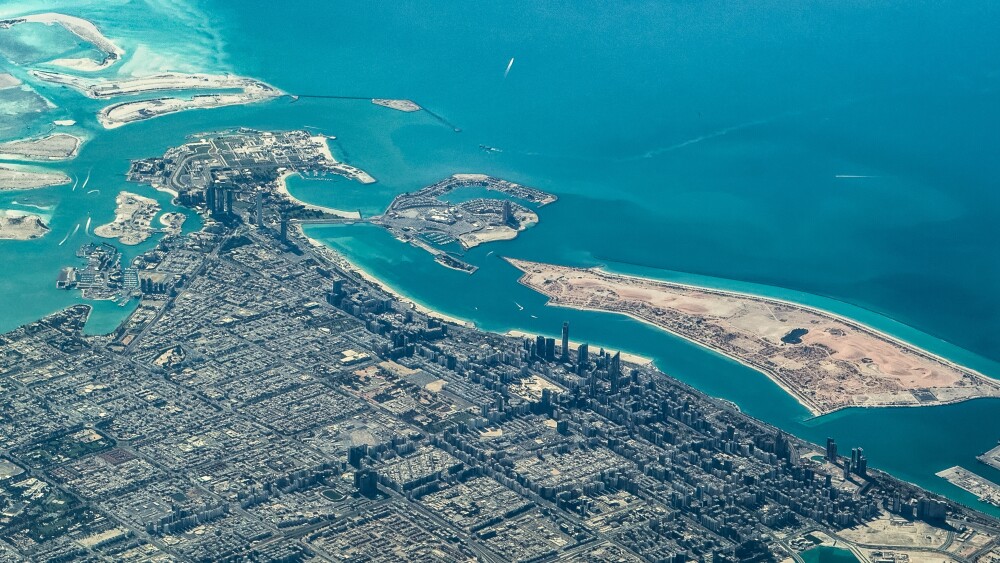In January 1968, the devaluation of the British pound caused Prime Minister Harold Wilson to reconsider Great Britain’s strategic posture. Gone was the ambition to be a global military power. Instead, London announced that the British military would withdraw from “east of the Suez.” On November 30, 1971, as the last British forces prepared to depart military bases in the Persian Gulf, the shah ordered the Imperial Iranian Navy to seize three islands in the Persian Gulf that the United Kingdom intended to hand over to the United Arab Emirates. Iranian forces landed on Abu Musa and the Greater and Lesser Tonb Islands.
Prior to the Islamic Revolution, the Iranian occupation of the islands was an irritant, though not an insurmountable one.
First the shah and then the Islamic Republic refused to return the islands to their rightful Emirati sovereignty. Prior to the Islamic Revolution, the Iranian occupation of the islands was an irritant, though not an insurmountable one. After all, even today only Greater Tonb and Abu Musa are populated but only barely so: Tonb is home to perhaps 300 people, while Abu Musa is home to no more than 7,000 people; a half century ago, the population was even more miniscule.
The true importance of the islands today is their strategic location just beyond the Strait of Hormuz. The islands dominate the sea lanes and come with territorial water. They also make shipping vulnerable as the Islamic Revolutionary Guard Corps has stationed forces on each one.
While the Gulf Cooperation Council has condemned Israeli strikes, fear that Israel and the United States will not finish the job likely motivates its hedging more than a desire to see the Islamic Republic’s nuclear program eliminated.
Over recent decades, both Republican and Democratic administrations have abandoned the symbiosis upon which the U.S. traditionally based alliances in favor of a transactional approach. This, in turn, has led allies to question whether U.S. partnership is worth the investment, or whether it is better to cultivate Moscow or Beijing to balance U.S. ties. Nowhere has this been more true in the Middle East than with the United Arab Emirates.
Perhaps to rectify past wrongs, the United States should signal to the United Arab Emirates that Washington will neither intercede nor interfere if Emirati marines wish to seize the islands. In 2024, Russia, meanwhile, declared its support for the United Arab Emirates over Iran despite Moscow’s close ties to Tehran.
Perhaps to rectify past wrongs, the United States should signal to the United Arab Emirates that Washington will neither intercede nor interfere if Emirati marines wish to seize the islands.
Given the isolation that the Islamic Revolutionary Guard Corps faces on its island outposts, the Iranian troops stationed there likely would surrender quickly if food, water, and fuel run low. Detention and disarmament would be relatively straightforward. Abu Dhabi likely could ask for Omani assistance to return both the captured Guards to Iran, as well as any Iranian settlers who colonized the islands after Iran’s 1971 conquest.
Washington should go further, however, in its support for Abu Dhabi. During its four-plus decades on Abu Musa, the Islamic Revolutionary Guard Corps allegedly contaminated portions of the island with either testing of or improper storage of chemical munitions. The Emirates will need assistance to strip and remove the soil and cleanse the island of contaminants. Given the Emiratis’ long and positive role in security, the United States also might encourage them to develop a maritime security center to monitor and protect traffic through the Strait of Hormuz.
War might represent the failure of diplomacy, but sometimes the upheaval surrounding it can rectify decades-old grievances and restore justice to a region. Ending the Islamic Republic’s nuclear program might be the primary goal, but restoring the occupied islands to Emirati sovereignty would be a worthy secondary one.








